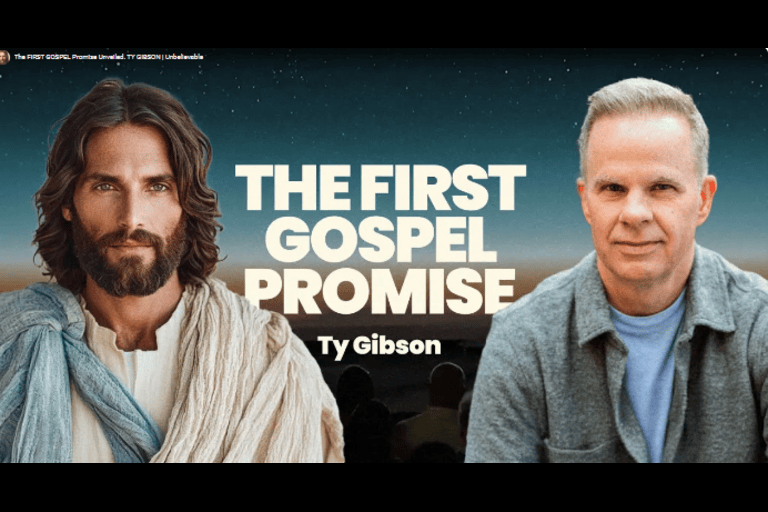“For the living know that they will die, but the dead know nothing; they have no further reward, and even their name is forgotten.” (Ecclesiastes 9:5, NIV). The question of what happens after death has stirred hearts and minds for centuries, igniting hope, fear, and curiosity. From the moment we draw our last breath, what awaits us? Is it heaven’s glory, a fiery hell, a state of rest, or something else entirely? For Christians, the Bible offers a lens through which to view this mystery, yet interpretations vary across denominations. In this blog post, we’ll explore what happens after death from a strictly biblical perspective, contrasting Adventist, Baptist, Catholic, and secular teachings, with a special focus on the 2300-day prophecy and its connection to the Second Coming of Jesus Christ. Written with love and care, this exploration aims to bring clarity and comfort to those seeking answers about life after death.
Background Information: Understanding Death in Biblical Context
Death, as described in Scripture, is not the end but a transition. The Bible presents death as a consequence of sin (Romans 6:23) but also as a temporary state before the return of our Savior, Jesus Christ. However, Christian denominations interpret the state of the dead differently, shaping their teachings on heaven, hell, and the afterlife. To anchor our discussion, let’s examine the key perspectives:
- Seventh-day Adventist View: Adventists believe in “soul sleep,” where the dead remain unconscious, asleep until the Second Coming. They cite Ecclesiastes 9:5 and Psalm 146:4 to support the idea that the dead “know nothing” and their thoughts perish.
- Baptist View: Many Baptists hold that upon death, the soul immediately goes to heaven or hell, based on one’s acceptance of Christ. This view emphasizes an immediate judgment (Hebrews 9:27).
- Catholic View: Catholics teach that souls undergo particular judgment at death, entering heaven, hell, or purgatory—a temporary state of purification for those destined for heaven but not yet fully sanctified.
- Secular View: Secular perspectives typically deny any spiritual afterlife, viewing death as the cessation of consciousness, with no heaven, hell, or divine intervention.
These views set the stage for our exploration of what Scripture says about the state of the dead, particularly in light of the 2300-day prophecy and the Second Coming.
Main Arguments: Biblical Teachings on Life After Death
The State of the Dead: Sleep or Immediate Judgment?
The Bible frequently describes death as a “sleep.” In John 11:11-14, Jesus refers to Lazarus’ death as sleep, clarifying that he was dead, not conscious. Similarly, Daniel 12:2 speaks of those who “sleep in the dust of the earth” awaiting resurrection. This imagery aligns with the Adventist doctrine of “soul sleep”, where the dead remain unconscious until Christ’s return. Adventists argue that consciousness after death contradicts verses like Ecclesiastes 9:5 and risks implying immortality apart from God’s gift through Christ (1 Timothy 6:16).
In contrast, Baptists often point to Luke 23:43, where Jesus tells the thief on the cross, “Today you will be with me in paradise.” They interpret this as evidence of immediate entry into heaven or hell upon death, emphasizing an instant transition to the afterlife. However, Adventists counter that the Greek text lacks punctuation, and a comma placement shift (e.g., “I say to you today, you will be with me in paradise”) aligns with the unconscious, sleep view, pointing to a future resurrection.
Catholics, meanwhile, introduce the concept of purgatory, drawing from 2 Maccabees 12:46 (a deuterocanonical text) and 1 Corinthians 3:13-15, which speaks of purification by fire. They argue that souls destined for heaven may require cleansing from venial sins, a process not explicitly supported in Protestant interpretations of Scripture. The secular view, devoid of spiritual grounding, dismisses all such notions, asserting that death ends all consciousness, with no biblical basis for their stance.
Heaven and Hell: Final Destinations or Temporary States?
The Bible speaks vividly of heaven and hell, but their timing and nature differ across interpretations. Adventists see heaven as the ultimate reward for the righteous, received only after the Second Coming (1 Thessalonians 4:16-17). They view hell as a future event of destruction, not an ongoing place of torment, citing Malachi 4:1, where the wicked are “burned up” and reduced to ashes. This annihilationist perspective contrasts with traditional views of eternal torment.
Baptists typically teach that hell is an immediate, eternal destination for the unrepentant, referencing Matthew 25:46 (“eternal punishment”) and Revelation 20:10. They emphasize the urgency of accepting Christ as Savior to avoid this fate. Catholics align closely with Baptists on eternal hell but include purgatory as a temporary state for some, distinct from hell’s finality. Secularists, rejecting spiritual realms, often view hell as a mythological construct, lacking empirical evidence.
The 2300-Day Prophecy and Its Role
The 2300-day prophecy, found in Daniel 8:14, is central to Adventist eschatology and ties directly to the Second Coming. Adventists interpret the “2300 evenings and mornings” as 2300 years, using the biblical “day-for-a-year” principle (Numbers 14:34; Ezekiel 4:6). They calculate this period from 457 BC (the decree to rebuild Jerusalem) to 1844 AD, marking the start of a heavenly judgment process, often called the “Investigative Judgment.” This judgment, they believe, determines the fate of the dead and living before Christ’s return.
During this period, Adventists argue, the dead remain in unconscious sleep, awaiting resurrection at the Second Coming. The 2300-day prophecy underscores God’s timeline for resolving sin, cleansing the heavenly sanctuary, and preparing for Christ’s return. Baptists and Catholics, however, do not typically incorporate this prophecy into their teachings, focusing instead on immediate judgment or purgatorial processes. Secularists dismiss such prophecies as religious allegory, irrelevant to a materialist worldview.
The Second Coming: The Great Awakening
The Second Coming of Jesus Christ is the pivotal event in biblical eschatology, uniting all Christian perspectives in hope but differing in details. Adventists emphasize that at Christ’s return, the righteous dead are resurrected first (1 Thessalonians 4:16), receiving glorified bodies and ascending to heaven with the living righteous. The wicked dead remain in their graves until a later resurrection for judgment (Revelation 20:5).
Baptists share a similar view of the resurrection but often focus on the immediacy of the soul’s destination post-death, with the Second Coming finalizing God’s plan. Catholics also affirm the resurrection at Christ’s return but include the reunion of purified souls from purgatory with their glorified bodies. Secular views, lacking a spiritual framework, offer no equivalent to this hope, often framing death as a final end.
Practical Tips: Living with Eternity in Mind
The biblical perspective on death invites us to live purposefully, knowing our choices shape our eternal destiny. Here are practical ways to align your life with this truth:
- Deepen Your Relationship with the Savior
- Daily Prayer and Bible Study: Spend time in Scripture (e.g., John 14:1-3) to understand Christ’s promises about life after death. Prayer strengthens your connection to the Savior, offering peace about the future.
- Worship and Community: Engage with a faith community to grow in understanding of biblical teachings, whether Adventist, Baptist, or Catholic.
- Reflect on the 2300-Day Prophecy
- Study Daniel 8: Explore the historical and biblical context of the 2300-day prophecy with trusted resources like Adventist commentaries or interdenominational Bible studies. This can deepen your appreciation for God’s prophetic timeline, most notably Daniel 8:14.
- Focus on Preparedness: The prophecy points to a time of judgment. Live with integrity, trusting in Christ’s righteousness to cover you.
- Embrace Hope Over Fear
- Reject Fear of Death: Whether you believe in soul sleep or immediate judgment, Scripture assures believers of God’s love and justice (Romans 8:38-39). Let this truth dispel anxiety about death or hell.
- Share the Gospel: Encourage others with the hope of the Second Coming, emphasizing Christ’s return as the fulfillment of God’s plan.
- Evaluate Denominational Teachings
- Compare with Scripture: Test all teachings—Adventist, Baptist, Catholic, or otherwise—against the Bible (Acts 17:11). Seek clarity on “soul sleep”, heaven, hell, and purgatory through prayerful study.
- Ask Questions: Engage pastors or theologians to understand how their views align with Scripture, fostering respectful dialogue.
- Live for Eternity
- Make Godly Choices: Whether you lean toward Adventist, Baptist, or Catholic views, live in a way that honors God, knowing that your life impacts your eternal destiny (Galatians 6:7-8).
- Serve Others: Reflect Christ’s love by serving those around you, preparing your heart for His return.
Conclusion: A Hope Beyond the Grave
The question of what happens after death is not merely academic—it’s deeply personal, touching the core of our hopes and fears. From a biblical worldview, death is not the end but a pause, a moment of rest or transition leading to the glorious Second Coming of Jesus Christ. Adventists offer the comforting imagery of soul sleep, awaiting resurrection. Baptists emphasize the immediacy of heaven or hell, urging faith in the Savior. Catholics provide a nuanced view with purgatory, focusing on purification and grace. Secular perspectives, while devoid of spiritual hope, remind us of the importance of grounding our beliefs in Scripture.
The 2300-day prophecy, particularly in Adventist teaching, anchors these events in God’s grand timeline, pointing to a heavenly judgment that prepares the way for Christ’s return. Regardless of denominational differences, the Bible calls us to trust in Jesus, our Savior, who promises, “I am the resurrection and the life. The one who believes in me will live, even though they die” (John 11:25, NIV). As we await His return, let’s live with purpose, love others deeply, and hold fast to the hope of eternal life in His presence.
May this exploration bring you peace and inspire you to seek the Savior who holds the keys to life after death. What are your thoughts on these teachings? Share below, and let’s continue this journey together, looking forward to the day when Christ returns in glory.






